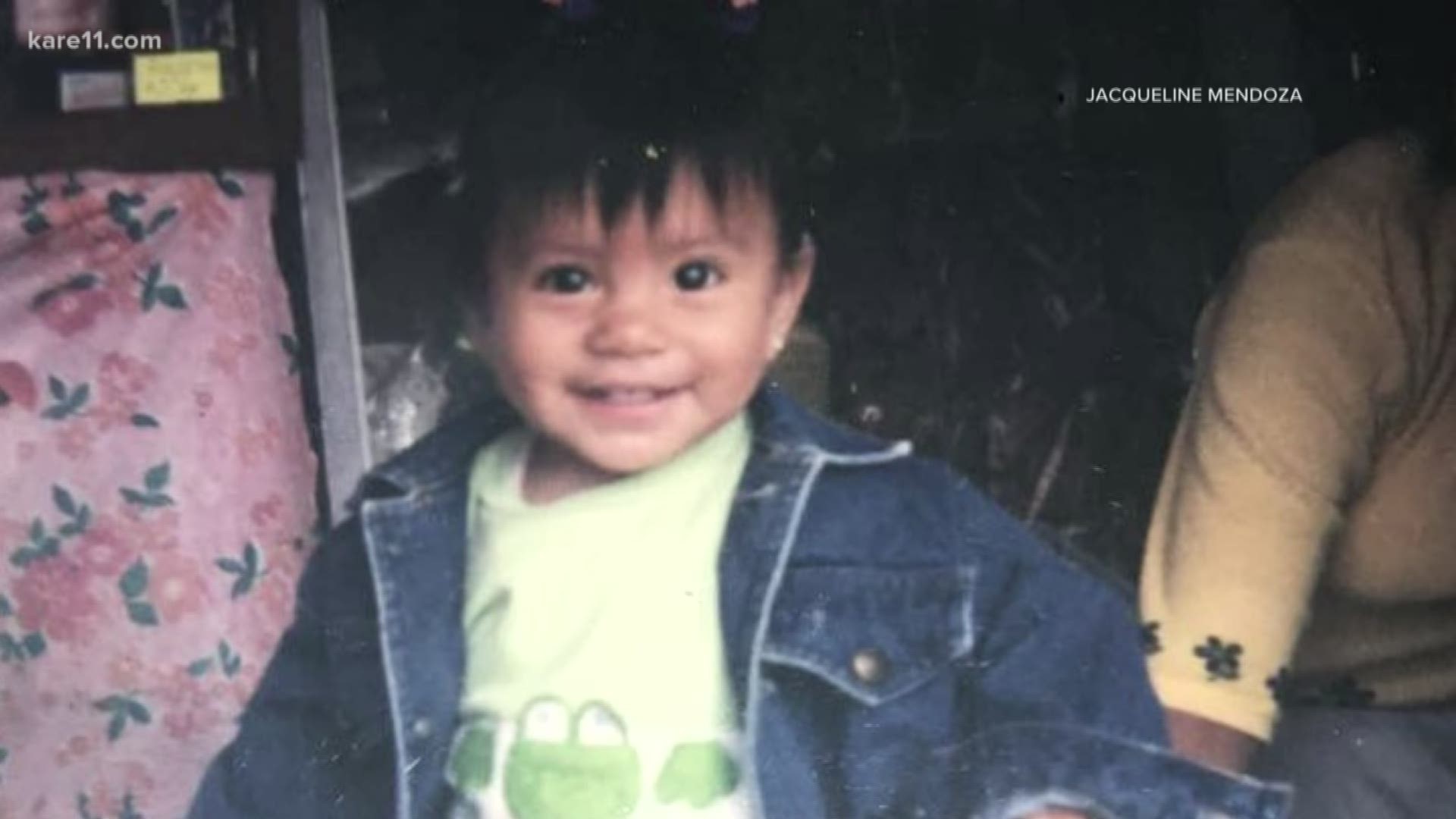MINNEAPOLIS — There's a lot of attention and focus on the Deferred Action for Childhood Arrivals (DACA) policy today. The Supreme Court is now considering the fate of DACA recipients, or Dreamers.
As the Justices talked about what to do with this program that President Barack Obama put in place, protesters lined the streets. If the Supreme Court ends DACA, nearly 700,000 people could face deportation.
Here in Minnesota, it's estimated there are more than 5,000 dreamers. Of the thousands, Jacqueline Mendoza is one, still a senior at Hiawatha Collegiate High School.
"I came to the United States when I was 18 months," Mendoza said. "I was really young. I've lived here all my life."
Born in Mexico and raised in Minnesota, Mendoza said she applied for DACA when she was eligible at the age of 15.
OTHER NEWS: Arrest made in Wis. starving dog case
"People don't understand that that's our only hope to getting our social security [number] to get a job, go to college, do so many of these things," she said.
Imagine being 15 years old and having an attorney to sort through a myriad of applications.
"It was a really hard process for me because I obviously couldn't talk to my parents just because they don't have the info that they need," Mendoza explained. "They don't have the answers for me when I needed them."
Mendoza said she thought about giving up many times. She said she even brought it up to her mother that they should just let it go and return to Mexico. However, giving up meant not going home to Mexico. It meant leaving home, leaving the United States.
"If I were to go back to Mexico, there would be such a disconnection between me and my family," she said. "I would go back home to strangers basically."
She said her home in the U.S. is starting to feel more and more hostile.
"I don't feel like I belong here but I also don't feel like I belong there," Mendoza said. "I'm just lost in the middle of these two countries."
They call people like Mendoza 'undocumented.' However, with the amount of scrutiny she's under as a DACA recipient, she's anything but. She said her family spent years actually documenting, taking photos, sending files.
"They required a lot of evidence that I was here and that I haven't left the United States," she said. "We sent them literally everything. We sent files and files of photos and documents that they didn't need. It was just so I can get this approval."
As a senior who is just now starting to hear back from colleges, it's hard for Mendoza to think of what comes after. However, she said the 'what if' never stopped her.
"Although I'm basically living in limbo, what keeps me going is just how many faces are going to be shook when they see me up there, you know?" she said referring to her future successes. "It's just that feeling that I'm going to let people know that it was an undocumented immigrant that did all of that. That feeling of feeling accomplished."
The Supreme Court's decision is expected sometime between January and June in 2020, right in the heat of the 2020 election.

